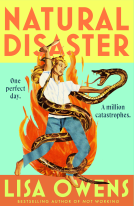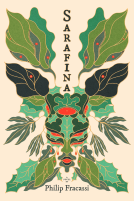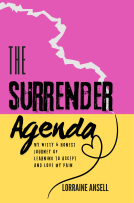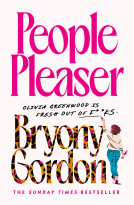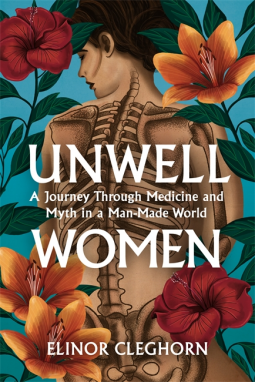
Unwell Women
A Journey Through Medicine and Myth in a Man-Made World
by Elinor Cleghorn
This title was previously available on NetGalley and is now archived.
Send NetGalley books directly to your Kindle or Kindle app
1
To read on a Kindle or Kindle app, please add kindle@netgalley.com as an approved email address to receive files in your Amazon account. Click here for step-by-step instructions.
2
Also find your Kindle email address within your Amazon account, and enter it here.
Pub Date 10 Jun 2021 | Archive Date 15 Jun 2021
Orion Publishing Group | W&N
Talking about this book? Use #UnwellWomen #NetGalley. More hashtag tips!
Description
'Seamlessly melding scholarship with passion, Unwell Women is the definition of unputdownable' Telegraph
'A richly detailed, wide-ranging and enraging history... Unwell Women is not just a compelling investigation, but an essential one' Observer
'A passionate and indignant history' The Times
'A searing, brilliant investigation, an intricate and urgent book on how women's health has constantly been misunderstood and miscast throughout history' Kate Williams
'One of the most important books of our generation' Fern Riddell
'UNWELL WOMEN is a powerful and fascinating book that takes an unsparing look at how women's bodies have been misunderstood and misdiagnosed for centuries.' Lindsey Fitzharris
'We are taught that medicine is the art of solving our body's mysteries. And as a science, we expect medicine to uphold the principles of evidence and impartiality. We want our doctors to listen to us and care for us as people, but we also need their assessments of our pain and fevers, aches and exhaustion to be free of any prejudice about who we are, our gender, or the colour of our skin. But medicine carries the burden of its own troubling history. The history of medicine, of illness, is a history of people, of their bodies and their lives, not just physicians, surgeons, clinicians and researchers. And medical progress has always reflected the realities of a changing world, and the meanings of being human.'
In Unwell Women Elinor Cleghorn unpacks the roots of the perpetual misunderstanding, mystification and misdiagnosis of women's bodies, and traces the journey from the 'wandering womb' of ancient Greece, the rise of witch trials in Medieval Europe, through the dawn of Hysteria, to modern day understandings of autoimmune diseases, the menopause and conditions like endometriosis. Packed with character studies of women who have suffered, challenged and rewritten medical orthodoxy - and drawing on her own experience of un-diagnosed Lupus disease - this is a ground-breaking and timely exposé of the medical world and woman's place within it.
Available Editions
| EDITION | Other Format |
| ISBN | 9781474616850 |
| PRICE | £16.99 (GBP) |
| PAGES | 496 |
Average rating from 16 members
Featured Reviews
 Media/Journalist 698842
Media/Journalist 698842
This big (in every sense) and vital book shines a light on what surely every woman who's ever sought medical help knows without, perhaps, fully understanding - that our bodies and medical histories are not seen through the same lens as that of our male counterparts. Cleghorn's deep dive into the history and whys of that is as enlightening as it is enraging, written with clear-eyed prose that refuses to shy away from the righteous fury its subject deserves. Timely and powerful.
 Saffy Y, Reviewer
Saffy Y, Reviewer
As a History graduate and someone who suffers with chronic pain it felt like this book was written for me ! It's an essential and long overdue look at the gendered nature of the medical profession from Ancient Greece to modern day. The author describes her own diagnosis of lupus and how it took 7 years of pain and other symptoms for her to finally be diagnosed. She looks at how in the nineteenth century women were seen as having biological characteristics such as sympathy or delicacy which could incite illnesses such as breast cancer. She describes the force feeding of the suffragettes and how women campaigning for the vote were labelled as hysterics. Of great interest to me was the section on fibromyalgia and CFS/ME. How the diagnosis of Epstein Barr virus was doubted by many medical professionals in 1987 (it was labelled a 'yuppie plague' by the media) and instead women experiencing aching muscles, sore throats and fatigue were labelled as bored and wealthy. From 1987 many in the medical professions did not accept that fibromyalgia was real and women were frequently labelled as emotional. From my own experience I know that little has changed in the way many medical doctors view these very real illnesses. Cleghorn also looks at how Black women are treated by the medical profession and how they encounter more ignorance, mistreatment and invisibility than white women. I found this to be an enlightening read which supports what we already know- that there is a gender bias in the medical profession, women are disbelieved and invalidated and that there have been centuries of distrust of women's own accounts of their pain. As the author says to be a woman today is to fight against 'ingrained injustices' but there is hope and steps forward are being made. We need to live in a world where women are believed.
Highly recommended read.
Many thanks to NetGalley and the publisher for a digital ARC.


